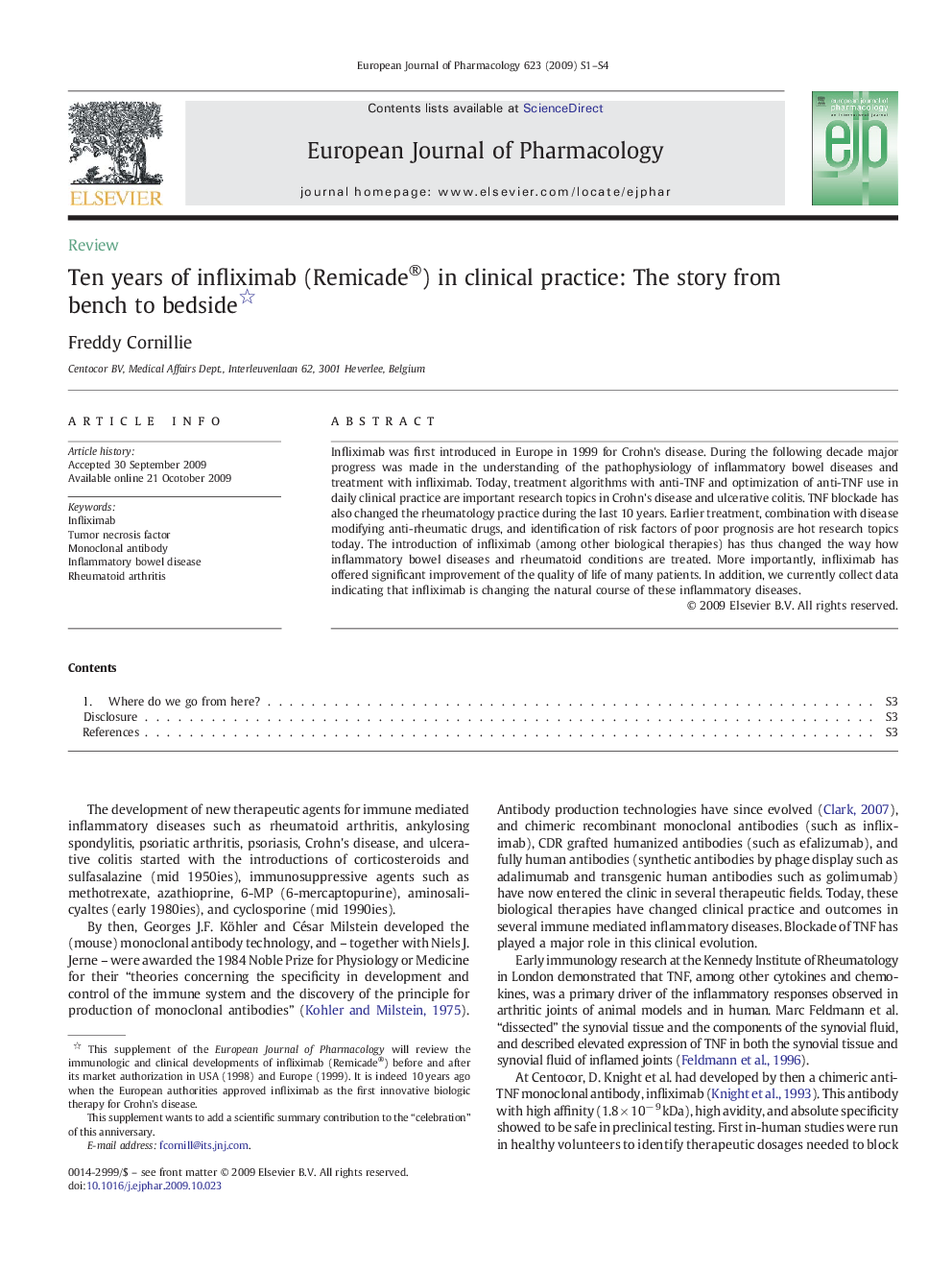| Article ID | Journal | Published Year | Pages | File Type |
|---|---|---|---|---|
| 2533993 | European Journal of Pharmacology | 2009 | 4 Pages |
Infliximab was first introduced in Europe in 1999 for Crohn's disease. During the following decade major progress was made in the understanding of the pathophysiology of inflammatory bowel diseases and treatment with infliximab. Today, treatment algorithms with anti-TNF and optimization of anti-TNF use in daily clinical practice are important research topics in Crohn's disease and ulcerative colitis. TNF blockade has also changed the rheumatology practice during the last 10 years. Earlier treatment, combination with disease modifying anti-rheumatic drugs, and identification of risk factors of poor prognosis are hot research topics today. The introduction of infliximab (among other biological therapies) has thus changed the way how inflammatory bowel diseases and rheumatoid conditions are treated. More importantly, infliximab has offered significant improvement of the quality of life of many patients. In addition, we currently collect data indicating that infliximab is changing the natural course of these inflammatory diseases.
